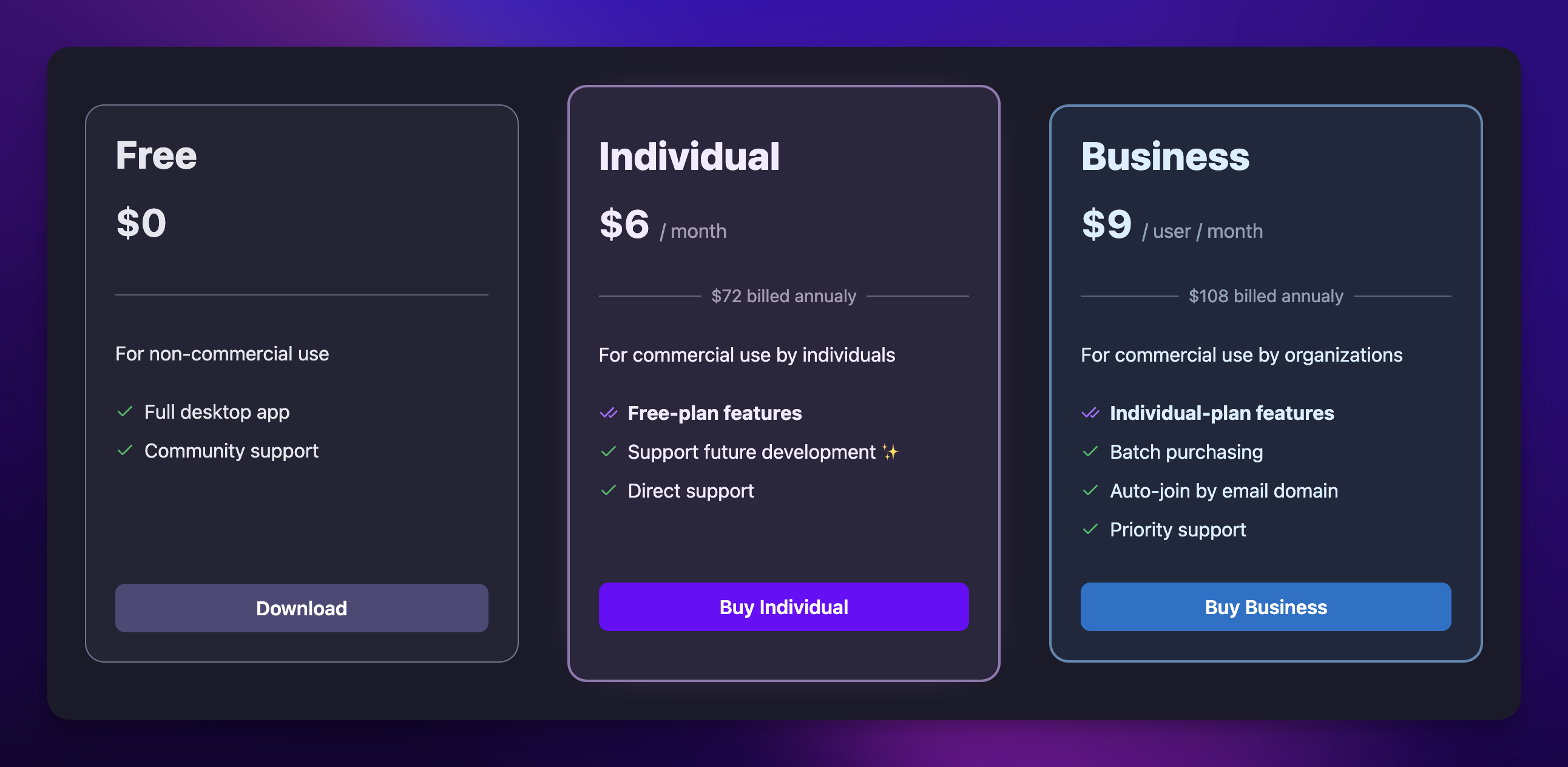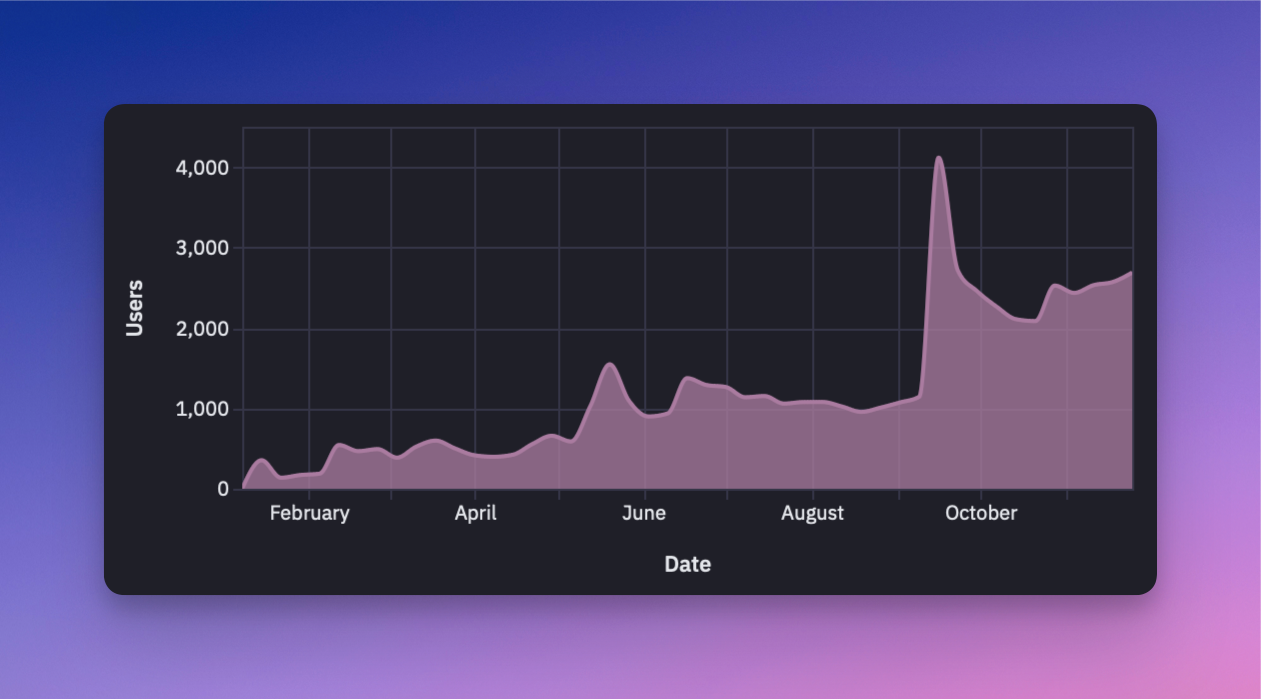After months of conversing with users and some (misguided) prototyping, I’m excited to finally settle on a business model that feels right—one that prioritizes sustainability and puts local-first development, well… first.

A visual overview of the pricing page
Let’s start with what’s not changing. Yaak remains open-source under the MIT license so you can still view, modify, and run the source code directly.
Here’s what’s new for use of the prebuilt binaries.
Purchasing a license not only supports Yaak’s ongoing development but also unlocks these benefits:
Licenses are available for individuals at $8/month and companies at $12/user/month,
with a 25% discount for billing annually.
Be sure to check out the Pricing Page for details on the trial period, purchasing power parity, bulk purchasing, and more.
Now, let’s talk about how this came to be.
Remember those months of “prototyping the wrong thing?” Well, that was cloud sync. So why’d it get scrapped?
A while back, I shared an RFC for data synchronization to gather feedback. Many of you had asked for a way to store Yaak data in a folder for seamless Git integration, so I wanted to explore whether cloud sync still had a place alongside filesystem storage. Your response was loud and clear:
No one wants cloud sync 🫠
As long as the app never wants to connect anywhere unless I ask it to
– feedback
Using git would definitely be the best solution here
– feedback
Turns out, you just want local files to easily integrate with Git, Dropbox, or other tools; not another company holding your sensitive API data hostage in the cloud. And you know what? You’re absolutely right.
Without cloud sync, I needed a different way of supporting Yaak’s future. I considered freemium models but dislike how they incentivize pushing core features behind a paywall (see enshittification).
That’s why I chose commercial use—looking to apps with similar pricing models like Obsidian, Orbstack, and WebStorm.
This model feels fair for both Yaak and its users. If Yaak helps you earn money, Yaak earns money. It lets me focus fully on building the features you’ve been asking for:
No usage limits. No upselling. No cloud lock-in. Just a solid, privacy-respecting desktop API client that gets the job done.
Initially, open source made sense because I planned to offer a hosted cloud sync service. You’d pay for the cloud, not the app.
While I considered moving to a Fair Source license to align with the commercial-use model, I ultimately decided against it. I love that Yaak is open source and don’t want to change that. So, for those who prefer to compile the source code for their own use, the option remains open.
This commercial model ensures that I can continue working on Yaak while keeping it true to its goal: a powerful, private, local-first desktop API client that puts you in control.

Yaak’s weekly active user growth, since inception
It’s been an amazing ride so far but Yaak wouldn’t exist without you, the community. So if you have feature requests, ideas, or questions about the pricing, be sure to drop them on the Feedback Board or find me on BlueSky @schier.co.
Thanks again for making this possible. 🙏🏼
~ Greg